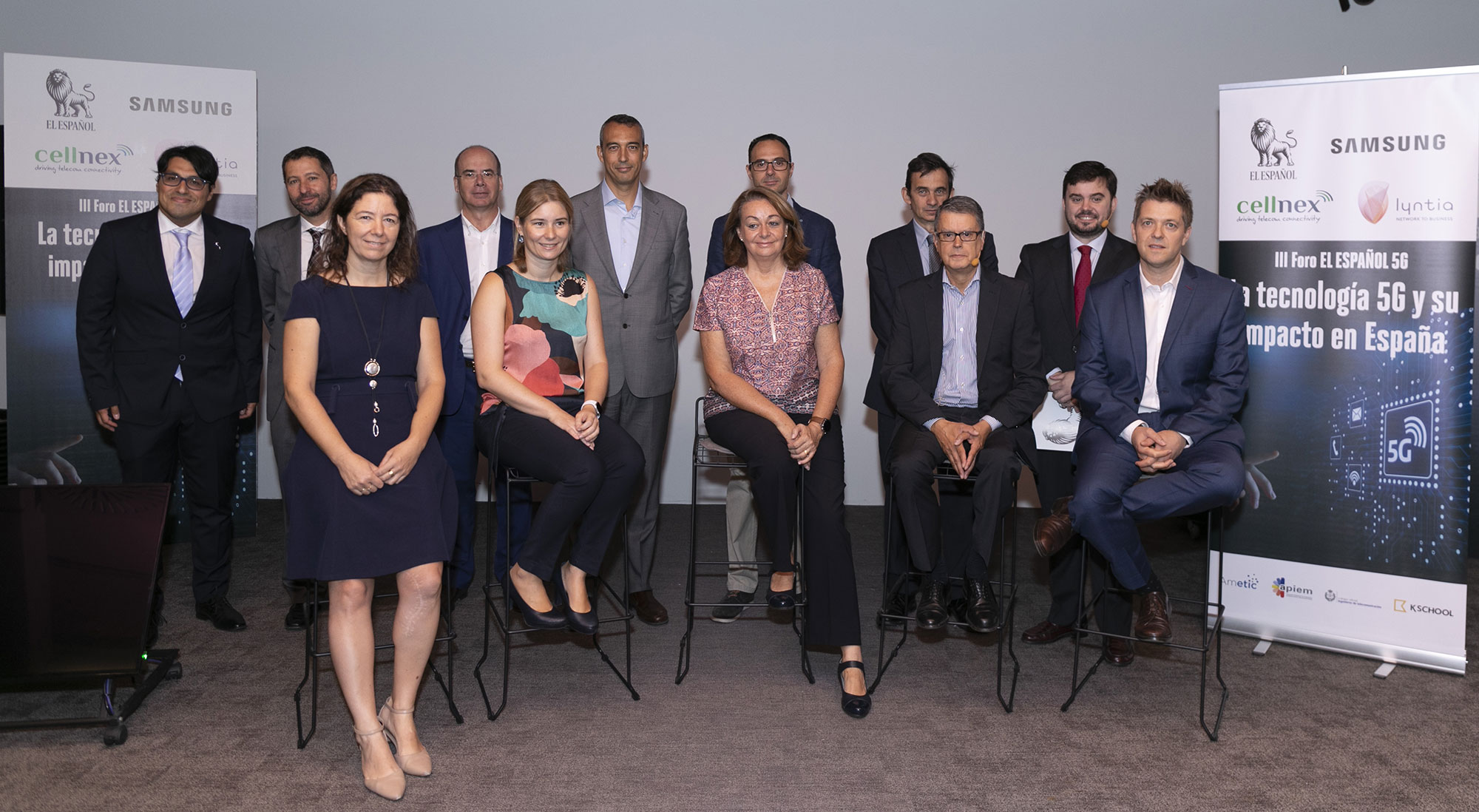
05 Nov lyntia at El Español’s 3rd annual 5G technology forum
5G technology is going from strength to strength across Spain at the moment and has all the hallmarks of leading the way on innovation within the telecommunications sector in both the medium and longer term. This is exactly what those attending El Español’s 3rd annual 5G Forum entitled 5G Technology and its Impact on Spain were able to see, which took place back in September, where lyntia played a significant role through the participation of its Strategy Director, Nacho Ríos.
It’s clear that adopting lines of business centred around 5G technology is fundamentally changing behaviour amongst key service providers, neutral operators, companies and consumers alike, just like in the past with the implementation and development of 4G. Mr Ríos stressed that neutral operators like lyntia, within the landscape of expansion that’s fast approaching, “can contribute to making 5G technology and high-speed Internet much more inclusive than ever before. Our goal is to reach a greater number of people, taking advantage of our extensive infrastructure amongst rural populations”, he explained.
Now is the time to firmly commit to 5G
Although there’s no shortage of discussion around the benefits and opportunities on both an economic and development level around high-speed Internet in terms of R&D and innovation, with 5G technology certainly at the forefront, its deployment is progressing at a slower rate than expected. According to everyone at the 5G forum organised by El Español, we’re heading into a transition period that will last at least the next five years.
Despite shrinking forecasts, this period also represents a window of opportunity for operators, manufacturers, users and companies alike to adopt 5G progressively and fully exploit all its possibilities, given its obvious potential.
In order to ensure 5G becomes a truly effective and profitable technology, it’s essential companies can find solvent backers and partners within the sector who can facilitate the adoption of this exciting technology without any potential investments excluding companies from the market. As such, neutral operators can be active partners for other frontrunners. lyntia’s Strategy Director recalled that, in the process of identifying 5G’s true profitability, costs for telecommunications operators can be reduced. “We help rationalise their infrastructure and make use of existing passive structures, reducing costs as we go”, he explained.
Government backing for 5G roll-out in Spain
The El Español 5G Forum was officially opened by Roberto Sánchez, Director General of Telecommunications and Information Technologies at the Spanish Ministry of the Economy and Business, who confirmed that the tender for the 700MHz band will be launched during the first quarter of next year and that operators will now be able to use their full spectrum available as of July 2020.
According to Mr Sánchez, despite the electoral calendar and recent difficulties in forming a government, the roll-out of the country’s second digital dividend remains unaffected and all deadlines remain in place. Similarly, he recalled that Spain is one of the leading countries in Europe in deploying this new technology and reaffirmed the executive’s commitment to it, indicating that before the end of the year a new fund for 5G pilot projects is to be launched, this time, promising 45 million euros for 11 different projects.
This kind of support will be essential for those who want to develop their business with 5G technology at the centre. lyntia’s Strategy Director added that new network requirements will force companies to look upon this particular avenue favourably. Mr Ríos recalled that 5G makes networks much more flexible, which means operators will have to greatly strengthen fibre, even with 5G antennas. “Systems must be able to support the networks, so backups will become much more important in providing alternatives and continuity of service”, said Mr Ríos.
With their participation in events like this, lyntia is demonstrating its value as one of the key stakeholders in a process that, over the coming years, will only create faster, more effective, safer and low-latency networks, as well as being capable of reliably supporting information exchanges over substantially greater bandwidths than those currently in place.
Image source: Jesús Umbría, EL ESPAÑOL

